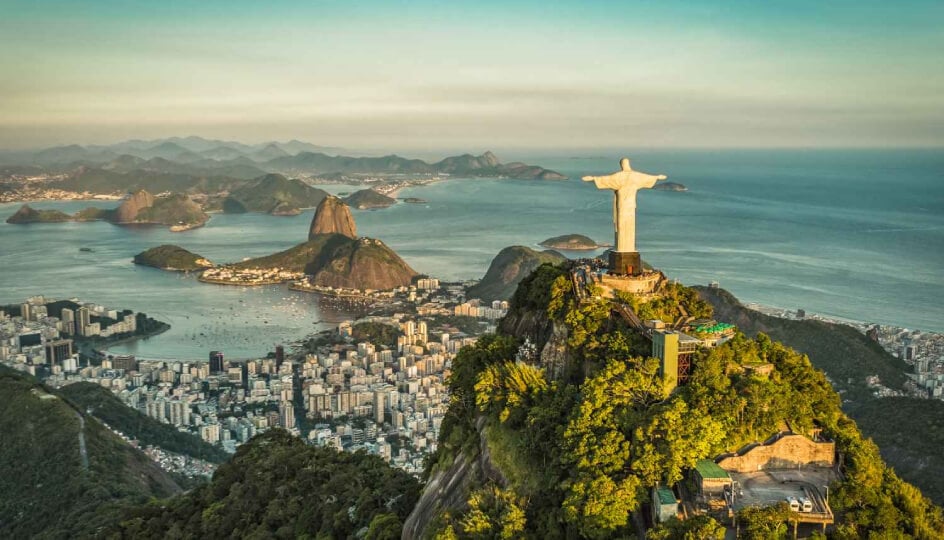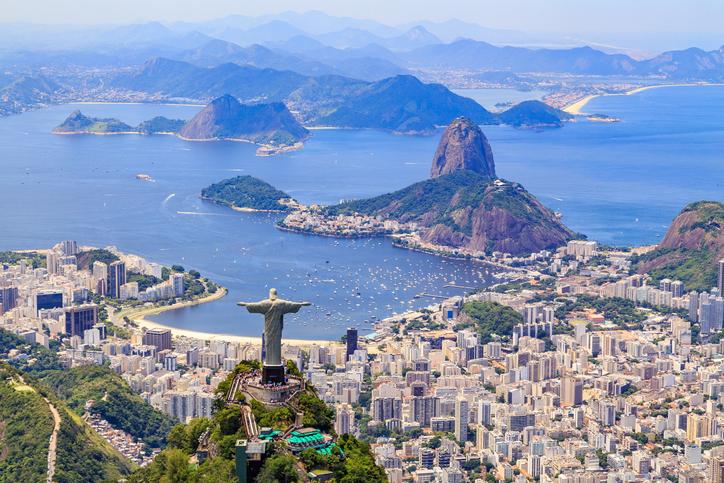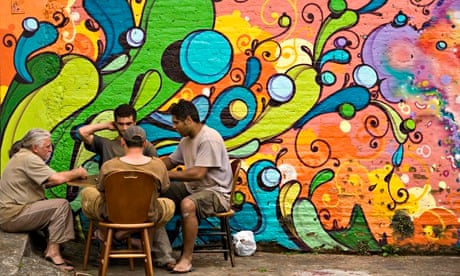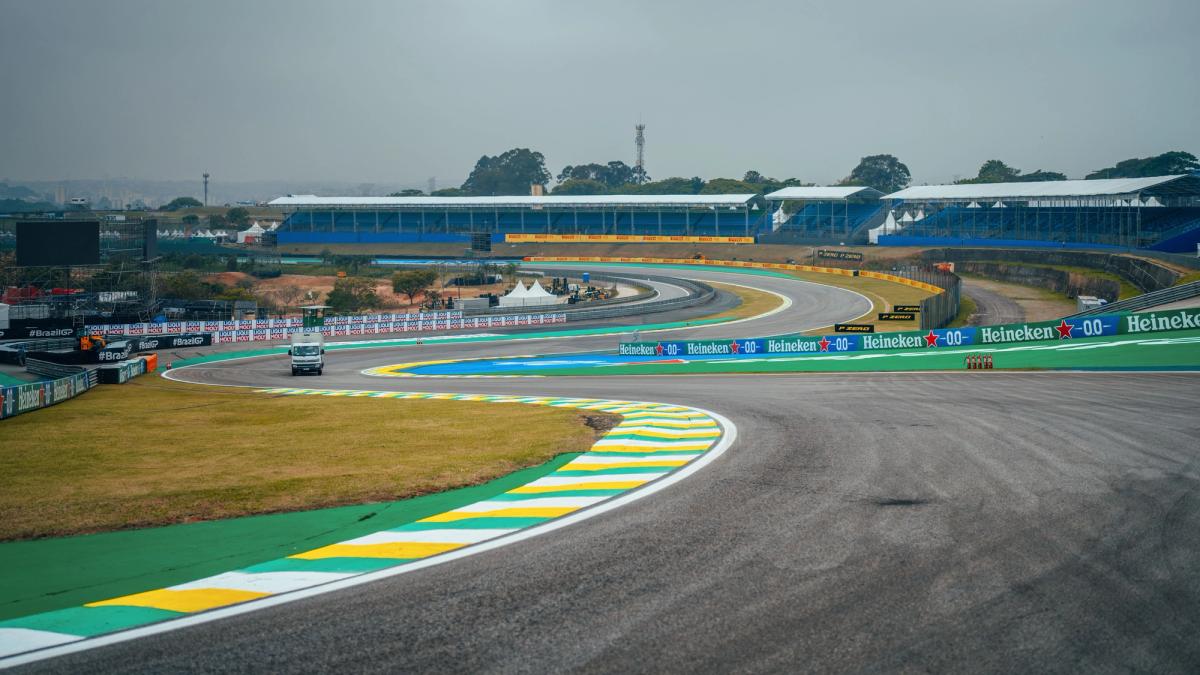Brazil: A Vibrant Tapestry of Culture, Diversity, and Natural Beauty
Introduction:
Nestled within the heart of South America lies Brazil, a nation as vast and diverse as the continent itself. From the lush Amazon rainforest to the vibrant streets of Rio de Janeiro, Brazil captivates the imagination with its rich tapestry of culture, history, and natural beauty. In this article, we embark on a journey through the enchanting landscapes and dynamic cities of Brazil, exploring its multifaceted identity and enduring allure.
Geography and Biodiversity:
Brazil's geographical diversity is nothing short of breathtaking, encompassing dense rainforests, sprawling savannas, majestic mountains, and pristine coastlines. At the heart of Brazil lies the Amazon rainforest, the largest and most biodiverse tropical rainforest in the world. Home to an extraordinary array of flora and fauna, including jaguars, macaws, and anacondas, the Amazon is often referred to as the "lungs of the Earth" for its role in regulating the planet's climate.
In addition to the Amazon, Brazil boasts a wealth of natural wonders, including the Pantanal wetlands, the Atlantic Forest, and the Cerrado savanna. Each ecosystem harbors unique species found nowhere else on Earth, making Brazil a global hotspot for biodiversity and conservation.
Cultural Mosaic:
Brazil's cultural landscape is as diverse and vibrant as its geography, shaped by centuries of indigenous, European, African, and Asian influences. The indigenous peoples of Brazil, including the Tupi, Guarani, and Xingu, have left an indelible mark on the country's identity, from its language and cuisine to its music and folklore.
Following the arrival of Portuguese explorers in the 16th century, Brazil became a melting pot of cultures, with African slaves, European settlers, and indigenous peoples intermingling to create a rich tapestry of traditions. Today, Brazil's cultural heritage is celebrated in its music, dance, festivals, and culinary delights, from the rhythms of samba and bossa nova to the flavors of feijoada and acarajé.
Cities and Urban Life:
Brazil's cities pulse with energy and diversity, offering a kaleidoscope of experiences for visitors and residents alike. At the forefront is Rio de Janeiro, known for its iconic landmarks such as the Christ the Redeemer statue, Sugarloaf Mountain, and Copacabana Beach. Rio's vibrant street life, colorful festivals, and bustling markets embody the spirit of Brazilian culture, drawing millions of visitors each year.
São Paulo, Brazil's largest city, is a bustling metropolis of skyscrapers, cultural institutions, and culinary delights. From its world-class museums and art galleries to its eclectic neighborhoods and thriving nightlife, São Paulo is a city of contrasts and contradictions, where tradition meets modernity in a dynamic fusion of cultures.
Beyond Rio and São Paulo, Brazil boasts a wealth of other cities and towns waiting to be explored, from the colonial charm of Salvador and Olinda to the natural beauty of Florianópolis and Manaus. Each city offers its own unique blend of history, culture, and hospitality, inviting visitors to immerse themselves in the rich tapestry of Brazilian life.
Challenges and Opportunities:
Despite its many attractions, Brazil faces a myriad of challenges, from deforestation and environmental degradation to social inequality and political instability. The Amazon rainforest, often referred to as the "lungs of the Earth," is under threat from illegal logging, mining, and agricultural expansion, posing a grave risk to global biodiversity and climate stability.
Moreover, Brazil struggles with widespread poverty, crime, and corruption, exacerbating social tensions and hampering economic development. Political turmoil and governance issues further compound these challenges, hindering efforts to address pressing issues such as education, healthcare, and infrastructure.
However, amid these challenges lie opportunities for positive change and sustainable development. Brazil has made strides in recent years to promote environmental conservation, invest in renewable energy, and empower marginalized communities. Initiatives such as the Bolsa Família social welfare program and the Amazon Fund demonstrate Brazil's commitment to addressing social inequality and environmental sustainability.
Looking Ahead:
As Brazil looks to the future, it must balance economic growth with environmental protection, social inclusion, and cultural preservation. Sustainable development strategies, investment in education and infrastructure, and greater transparency and accountability in governance are essential for realizing Brazil's full potential and safeguarding its natural and cultural heritage for future generations.
Brazil is a land of contrasts and contradictions, where the rhythms of the Amazon rainforest meet the beat of Rio's samba streets. From its breathtaking landscapes to its vibrant cities, Brazil offers a wealth of experiences for those willing to explore its diverse tapestry of culture, history, and natural beauty. As the country navigates the challenges and opportunities of the 21st century, one thing remains certain: Brazil's spirit of resilience, creativity, and hospitality will continue to captivate the world for generations to come.
Exploring Brazil's Future Potential:
- Urbanization Challenges: Brazil's urban areas, including metropolises like São Paulo and Rio de Janeiro, face significant challenges related to infrastructure, transportation, and public services. As the country's population continues to grow and urbanize, addressing issues such as traffic congestion, housing affordability, and access to healthcare will be paramount.
- Education and Innovation: Investing in education and innovation is crucial for Brazil's long-term economic growth and competitiveness. By fostering a skilled workforce, supporting research and development, and promoting entrepreneurship, Brazil can unlock its full potential and drive innovation across sectors.
- Social Inclusion and Equity: Despite progress in recent years, Brazil still grapples with deep-rooted social inequalities and disparities. Closing the gap between rich and poor, promoting social inclusion, and ensuring equal opportunities for all Brazilians are essential for building a more just and equitable society.
- Sustainable Development: Brazil's abundant natural resources and biodiversity are both a blessing and a responsibility. Embracing sustainable development practices, protecting ecosystems, and combating deforestation are critical for preserving Brazil's natural heritage for future generations.
- Global Leadership: As a regional powerhouse and emerging global player, Brazil has the opportunity to exert greater influence on the world stage. By engaging in diplomacy, fostering international partnerships, and championing global issues such as climate change and human rights, Brazil can assert itself as a responsible and respected leader in the international community.
Conclusion:
Brazil's journey from colonialism to modernity is a testament to the resilience, creativity, and spirit of its people. As the country looks to the future, it must harness its diverse strengths and address its challenges with courage, vision, and determination. By embracing sustainable development, fostering social inclusion, and promoting innovation, Brazil can realize its full potential and continue to inspire the world with its beauty, culture, and dynamism.





































